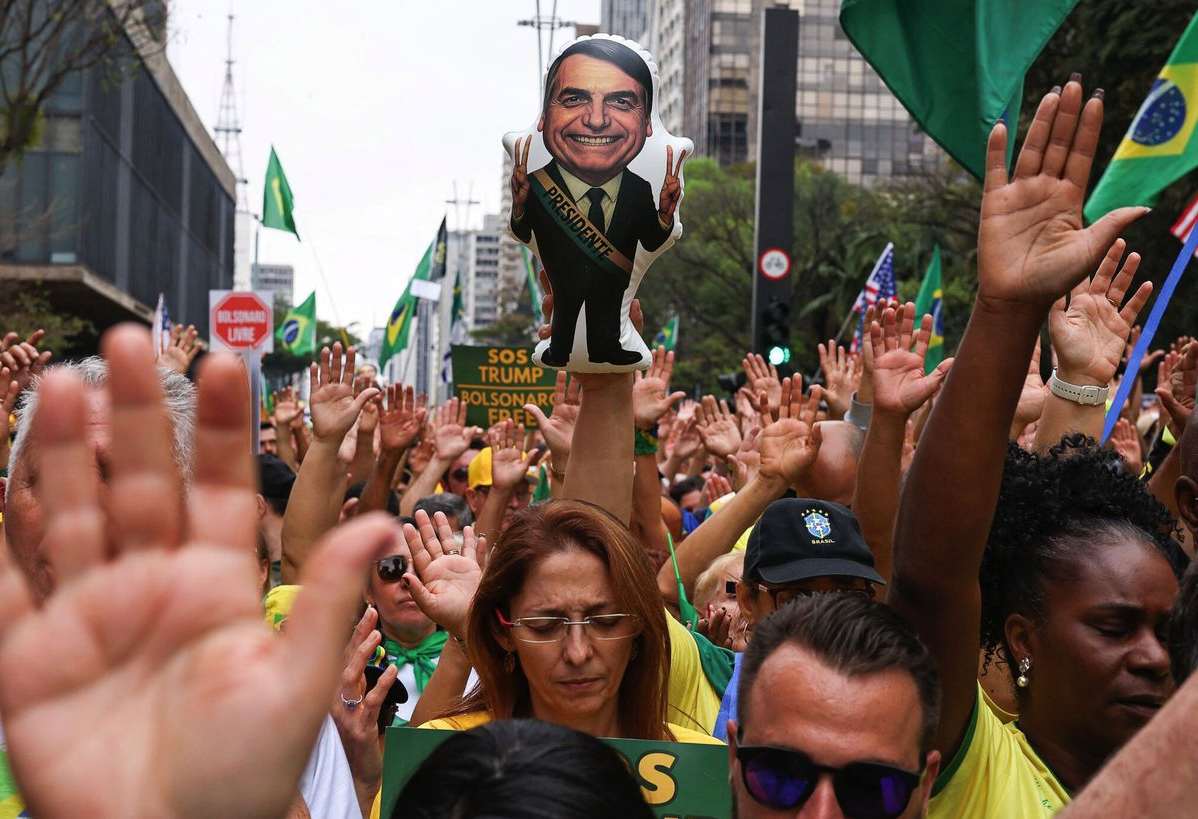September 11, 2025, became a historic date in Brazil. For the first time, both military officers and civilians were convicted by the Supreme Federal Court for attempting a coup d’état and suppressing the rule of law, among other charges. Justice Cármen Lúcia cast the decisive vote that formed the majority for the conviction of several high-ranking military officers, including Lieutenant Colonel Mauro Cid and former president Jair Messias Bolsonaro, leader of the criminal organization. Her vote was crucial in shaping the understanding of the crime of criminal organization, a notion shared by four of the five justices.
The defendants built their cases around two main arguments: their physical absence during the assault on the branches of government on January 8, 2023, and the claim that the evidence presented was mere speculation. However, the justices dismissed these defenses, emphasizing that the coup movements had been publicly endorsed by the accused through street rallies, social media posts, and ministerial meetings. The overwhelming body of documented evidence—images, recordings, and official documents—made their responsibility for the attempted coup unmistakably clear.
The ongoing coup: external and internal fronts
But coup-plotting continues, beyond the investigations compiled in the criminal case that convicted the defendants in Criminal Action 2668. As the trial began and Bolsonaro’s conviction became imminent, his son Eduardo—currently a federal deputy—decided to settle in the United States (without resigning his seat and therefore continuing to receive public funds) to coordinate an international coup offensive backed by the Trump administration.
Following Eduardo Bolsonaro’s calls, the U.S. president decided to apply the Magnitsky Act against Minister Alexandre de Moraes (and his wife) and to impose a staggering 50% tariff on Brazilian exports to the United States. These moves were not only attempts to coerce the judge overseeing the criminal case but also acts of economic destabilization against Brazil. In response, the White House spokesperson declared that President Trump did not rule out the use of military power to intervene in countries that come into conflict with the United States—a statement that explicitly referred to tensions with Brazil.
Internal coup efforts, led by Bolsonarists in the National Congress, soon launched another offensive. On September 17, the Chamber of Deputies approved the proposed constitutional amendment known as the “Shield PEC.” It stipulates that only Congress can decide, through a secret vote, whether to prosecute lawmakers and party leaders represented in the legislature. In practice, it is a measure that shields Bolsonaro and his allies from prosecution, institutionalizing the notion that criminal organizations can hold legislative office as a means of securing immunity. The Chamber also fast-tracked an amnesty bill aimed at pardoning Bolsonaro, his coup-plotting followers, and other criminals in Brazil.
These acts of ongoing coup behavior are also about refusing to recognize defeat or creating a perception of strength to mobilize followers. There is a strong sectarian streak in the mindset and actions of Bolsonarists. As Pastor Malafaia once told a faltering Bolsonaro in a WhatsApp audio message that he had “the knife and the cheese in his hand,” Brazil’s authoritarian and fascist right thrives on a hallucinatory sense of reality—it always doubles down. The closer it is to defeat, the greater its triumphalist delusions.
Images showing right-wing lawmakers celebrating the approval of the Shield PEC and the amnesty bill’s urgency vote in the Chamber of Deputies depict a state of collective delirium. Yet these are individuals who profit from power deals in which the line between legality and criminality is blurred. They advocate for an authoritarian regime as a way to normalize the abuse and violence that define their political and personal trajectories.
Nevertheless, the coup plotters will be punished, and their ongoing schemes dismantled. The authoritarian right often sows confusion to distract the public from its defeats and crimes. But it will be difficult for these initiatives to materialize. The Chamber’s approvals still depend on Senate validation, and several senators have already expressed their intent to reject them.
Before the Senate could decide on these proposals, the streets spoke out. On Sunday, September 21—the first day of spring—Brazil’s streets bloomed with massive demonstrations defending democracy. The protests expressed a resounding rejection of the amnesty bill and the Shield PEC. Days later, the Senate’s Committee on Constitution and Justice unanimously rejected the Shield PEC, burying the proposal for impunity and privilege. The amnesty bill now faces growing resistance in the National Congress.
The political landscape has shifted since the massive protests, with several parties distancing themselves from these proposals and choosing caution. However, internal coup efforts have not disappeared, as they now seek to link the approval of the amnesty bill to an income tax exemption bill—one of President Lula’s campaign promises.
In this challenging environment, the commitment of social movements, students, universities, and rural and urban workers to defend democracy is essential to halting the coup-plotting ambitions that persist. We must remain awake and vigilant.
*Machine translation, proofread by Ricardo Aceves.














